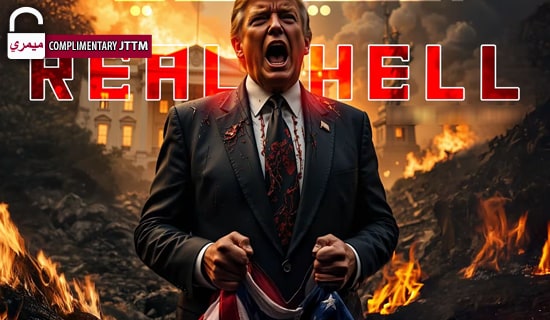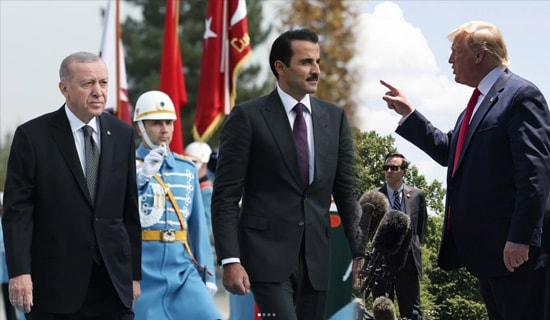Following the June 8, 2016 shooting in the Sarona compound in central Tel Aviv, Hani Al-Masri, a columnist for the Palestinian daily Al-Ayyam, wrote that a distinction must be made between organized resistance, which should be subject to strategic considerations, and spontaneous actions by individuals, which are an effective deterrent because the Israeli security forces are hard pressed to prevent them. He added that, in the absence of a leadership and organized action, spontaneous actions are better than nothing.
Al-Masri called to preserve the option of armed Palestinian resistance as defense against the aggression of the Israeli occupation and the settlers, and to combine it with other modes of resistance, as circumstances require. He added that all Israelis are legitimate targets, since they all serve in the military except for the ultra-Orthodox, most of whom are extremists who incite to kill non-Jews. Al-Masri did advise to avoid targeting children or targeting people indiscriminately in public places, "as befitting the just nature of the [Palestinian] cause and our moral superiority," and to "take into account" the presence of Israeli Arabs and "Jews who oppose the Zionist enterprise or who are fighting to defend Palestinian rights."
The following are excerpts from the article:[1]

Hani Al-Masri (image: Arab48.com)
"The Tel Aviv operation [i.e., the Sarona shooting] drew particular attention... There is disagreement among Palestinians, between the officials and part of the elite, who opposed it[ii] ... and the majority of the people and factions, who supported it... There is no choice but to make a distinction between organized resistance, carried out by organizations, and actions carried out by individuals, and it is inappropriate to apply the same rules to both types of action. Organized action must be subject to considerations of strategy and benefit... whereas the actions of individuals are not subject to such criteria. When actions by individuals become frequent, as happened in the recent wave of the intifada, the so-called 'Knife Intifada,' we should discuss the reasons and motivations for this, instead of automatically opposing [these actions], condemning them or condoning them - because the reason for these actions is the occupation, as the mayor of Tel Aviv said. Furthermore, when there is no [united Palestinian] leadership, no united national body, no active forces and no vision or strategy, this accelerates the law of nature [i.e., Newton's Third Law] that states that 'for every action there is an equal and opposite reaction.' This is not [an attempt] to sanctify these spontaneous [actions by individuals] but rather an attempt to understand them in the context current of the Palestinian [situation].
"Spontaneous [action] is not always devoid of political context or disassociated from the struggle, either on the tactical level or the strategic one. On the contrary, it could be a decisive response, since when Israel carries out its actions against the Palestinians, [exploiting] the absence of a [Palestinian] leadership and the helplessness of the factions, individual action is a fitting response to the uniqueness of the Palestinian situation, as Israeli security forces are hard pressed to prevent it... Thus, this is an effective deterrent response [that can] cause the Israelis to question the effectiveness of force and of the the security and military solution, and make them consider... changing their position and seeking out a political solution that the Palestinian side will accept.
"If some method was appropriate as the main method of operation at a particular time, that does not mean we should reject, oppose, or condemn other courses [of action]. On the contrary, historical experience teaches that struggles - including the Palestinian, the Indian, the South African, and other struggles - can combine peaceful [modes of] struggle with armed combat... One side cannot unilaterally determine the proper course of struggle. The nature of the conflict, its special characteristics, its circumstances, the factors influencing it, and the behavior of the other side all play a substantial role in determining the nature of the struggle.
"When the enemy is something like the Israeli occupation, which is realizing an imperialist settler plan which rejects an arrangement; which has radical goals and the ability to influence it from within is limited or non-existent; and which uses more and more force to achieve its goals - then it is no use rejecting armed resistance, even if, at one stage or another, this is not the most appropriate [choice as] the main course [of action].
"Armed struggle should be ever-present, being a guaranteed right. [But] it should be used in accordance with circumstances and cannot be totally ruled out or defined as a crime. In this stage we should mainly use armed resistance to defend ourselves from the aggression of the occupation soldiers and the hordes of settlers who are armed to the teeth, and to resist the repeated military aggression against the Gaza Strip and the daily hostile acts by settlers in the West Bank...
"The matter of harming civilians in Israel should be examined, taking into account that [Israel] is an imperialist racist settlement entity in which everyone is a soldier, and this view is [based on the fact] that weapons are common everywhere [in it], and that hundreds of thousands of civilians bear arms in the streets, and everyone serves in the military except for the ultra-Orthodox, most of whom are extremists who incite to kill non-Jews. Accordingly, the resistance activity must be well thought out and not indiscriminate, and must not be aimed against children or public places, as befitting the just nature of the [Palestinian] cause and our moral superiority. Likewise, [this activity] must take into account that there are some two million Palestinians with 'Israeli citizenship' and that there are Jews who oppose the Zionist enterprise or who are fighting to defend Palestinian rights or against the Israeli occupation.
"In the absence of an alternative, it is inconceivable that the solution will be for us to stand by with our arms folded and wait for rescue that will perhaps come from above... We must act to create an alternative, step by step, layer by layer, because when there is no alternative, there is a vacuum, and this [vacuum] will be filled by isolated operations of heroic resistance or by something else. Spontaneity... contributes to keeping the Palestinian cause alive; therefore, it is better than nothing, or than the possibility that the existing vacuum will be filled by terrorist organizations or by collaborators."
Endnotes:
[1] Al-Ayyam (PA), June 16, 2016.
[2] It should be noted that Palestinian President Mahmoud 'Abbas did not condemn the shooting; the Palestinian presidency issued a statement opposing violence against civilians from any side. The head of Fatah's Recruitment and Organization Commission, on the other hand, issued an official statement justifying the attack. See MEMRI Special Dispatch No.6466, Palestinian Reactions Immediately Following Tel Aviv Shooting: It Was 'A Natural Reaction'; 'A Ramadan Operation'; Palestinian Presidency One Day After Shooting: 'We Oppose Actions Against Civilians From Any Side', June 9, 2016.




.jpg)